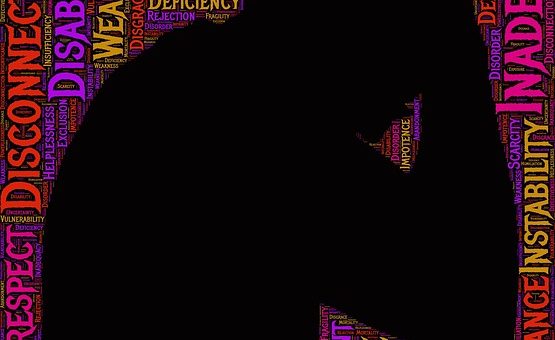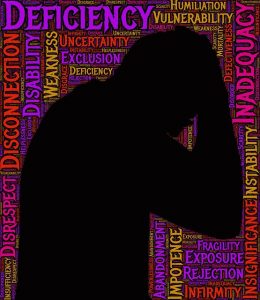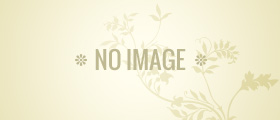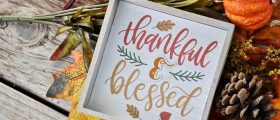
Do you obsessively wonder whether you or your work is good enough? Do you often worry that you don’t have what it takes to succeed in your chosen field? Are you constantly afraid that you can’t have a happy marriage (and family) and make a good living doing what you love? If so, you are grappling with self-doubt. But you’re certainly not alone. It might help you to know that some of the most famous, successful, and revered artists (Michelangelo, Leonardo da Vinci, and Vincent Van Gogh), writers (John Steinbeck, Edith Wharton, George Eliot), and even presidents (George Washington, Abraham Lincoln, and John F. Kennedy) suffered self-doubt. Obviously, that emotion didn’t stop them from achieving great success. And it need not stop you.
Understanding Self-Doubt
In this part of the series, some of the key concepts, distinctions, and ideas pertaining to self-doubt are clarified.

Occasional vs. Chronic Self-Doubt
Occasional self-doubt about how you are managing your life is understandable. It’s a given that human beings are uncomfortable with uncertainty. In an effort to try to navigate the unknown effectively, we can ask lots of questions, do our research, think things through, seek advice from experts, take constructive action, and make contingency plans for possible future outcomes. Despite all of this, we know the unexpected can happen and wreak havoc. No wonder moments of feeling insecure or worried about aspects of your career, health, finances or relationships crop up and you second-guess your decisions.
In contrast, chronic self-doubt is an earmark of emotional and perhaps mental problems. Agonizing over every decision, big or small, is painful, exhausting and counter-productive. The more you procrastinate and overthink the situation, the less likely you are to make a satisfactory decision you can feel good about.
Areas of Life Where Self-Doubt Expresses
Working on yourself to become the person you truly want to be and live the life you sincerely want to live is invaluable. It is arguably the most important project you can take on, offering huge rewards not only for you, but your family, friends, colleagues, teammates, and community. But for those who are confused about their mission or purpose, or who have gotten lost along the way, and don’t believe that they have the power to discover and follow their right path, life can be extremely challenging, disheartening, and filled with self-doubt.
In whatever stage of life you are, the recognition of new opportunities for personal growth and greater self-expression comes out of self-exploration and furthers self-determination. Both require honesty and a willingness to examine your accomplishments and admit your shortcomings pertaining to the major areas of your life: family, career, health, finances, relationships, social life, hobbies, and spiritual development.
Reviewing your successes and the hard work you put in to attain them reinforces your self-respect, self-confidence and motivation. At the same time, it takes courage to remind yourself of past mistakes that cost you dearly; times when you had to pick yourself up from a painful fall, and muster the strength to course correct.
Your shortcomings (and we all have them) are nothing to beat yourself up about, and knowing what they are is key, since they are simply indications of where you need to put more attention and figure out what constructive action you need to take in order to accomplish your goal.
Self-doubt may crop up in any or all areas of your life–or in different ones at different times. For example, based on positive past outcomes, you may trust your judgment about your career. You believe you have a strong work ethic, considerable aptitude, and that you make good decisions that move you forward on the path to attaining your goals. At the same time, you may suffer self-doubt when it comes to managing your finances (repeatedly falling back into debt) or picking romantic partners (who inevitably lie and cheat on you). Ask yourself, “In which areas of my life does chronic self-doubt have a hold on me? In which areas of my life do I second-guess my decisions, and waste time worrying about them after the fact. Which areas of my life am I ignoring completely, despite recurring problems and repeated mistakes, hoping somehow they will straighten themselves out. ” Those are the ones where you are suppressing your self-doubt, pushing it down below conscious thought as a way to avoid the discomfort it causes. Those are the ones that generate chronic self-doubt.
Left unchecked, your chronic self-doubt sabotages your well-being (mentally, emotionally, spiritually and physically). It drains you of energy and enthusiasm for life, so you feel less and less motivated and play it safe, backing off from opportunities that could enhance your life dramatically. Rather than imagining the excitement that a move to a new city could afford, or the improved health and vitality that joining a new group fitness program could provide, you unhappily stay put or keep doing the same old routine, despite your boredom or frustration and lack of positive results. Why? For fear that you wouldn’t be able to meet the challenges you’d face, that you would be worse off than you are now, feeling lost, ashamed, humiliated, all thoughts and feelings that fuel more self-doubt.
Self-Reflection vs. Self-Doubt
It was the Greek philosopher Socrates who said “The unexamined life is not worth living.” He believed that what gives our lives meaning and value is seeking to know and understand ourselves. And to do that is to engage in self-reflection.
Self-Reflection Empowers You
Engaging in self-reflection involves searching your heart, opening up your mind, and paying attention to your gut. It is a somewhat complex, yet very worthwhile activity, unlike doubting yourself, which ignores wisdom that comes from the heart, closes off the creative parts of your mind, and sours your gut feelings.
Periodically taking time to explore (or re-explore) your options deeply can be an important part of the process of self-determination. Asking yourself penetrating questions and listening for inspiring suggestions prompts you to find deeper meaning as you discover who you are and what you truly value. You may find yourself considering alternative goals and courses of action you hadn’t initially considered, and then weighing the pros and cons for each.
When confronted with big decisions that can have huge impact on you (and your loved ones) for many years (if not the rest of your life), self-reflection (i.e. asking the hard questions and pondering the possibilities and their implications) is not only appropriate, it’s required for choosing wisely.
“Am I deluding myself? Can I really manage an executive position at work and be an effective single parent of two children under the age of five? What help, tools, strategies, and techniques will I need to be successful at both?”
“Is taking premium supplements and eating only organic produce and grass fed beef too extravagant for someone paying off a $60,000 school loan?”
“If I go into Dad’s lucrative design business and give up my dream to be a veterinarian, will I come to regret it? If I don’t, will my relationship with Dad suffer?
“After all these years of living on my own, could I be happy married and raising children? What if I’m wrong about that?”.
Self-reflection also entails looking back over your past decision-making with an eye to evaluating how things turned out and what could have been done more effectively. Did you handle snafus along the way with flexibility and reasonable adjustments? If not, how could you better manage such challenges in the future.
Chronic Self-Doubt Sabotages Your Good
Chronic self-doubt is a form of self-sabotage (often unconscious and unintentional) that chips away at self-reliance, self-trust, and self-esteem. It generates re-occurring confusion, anxiety, resistance and inaction that become entrenched in patterns of destructive behavior that stunt personal growth and fulfillment. Dragging out the completion of a project, obsessively reconsidering choices or delaying decision-making to the very last moment are some examples of such behavior.
Contributing to an unhealthy sense of self, diminished life experience, cognitive distortion and emotional pain, chronic self-doubt also has negative physiological consequences that include excessive flow of stress hormones and increased internal inflammation in the body.
In Part 2 of “Transforming Self-Doubt Into Self-Confidence” you’ll learn what triggers for self-doubt are. In order to transform your self-doubt, you need to understand how flare ups get ignited and what you can do to prevent them, or at least how to react and recover when they do.






